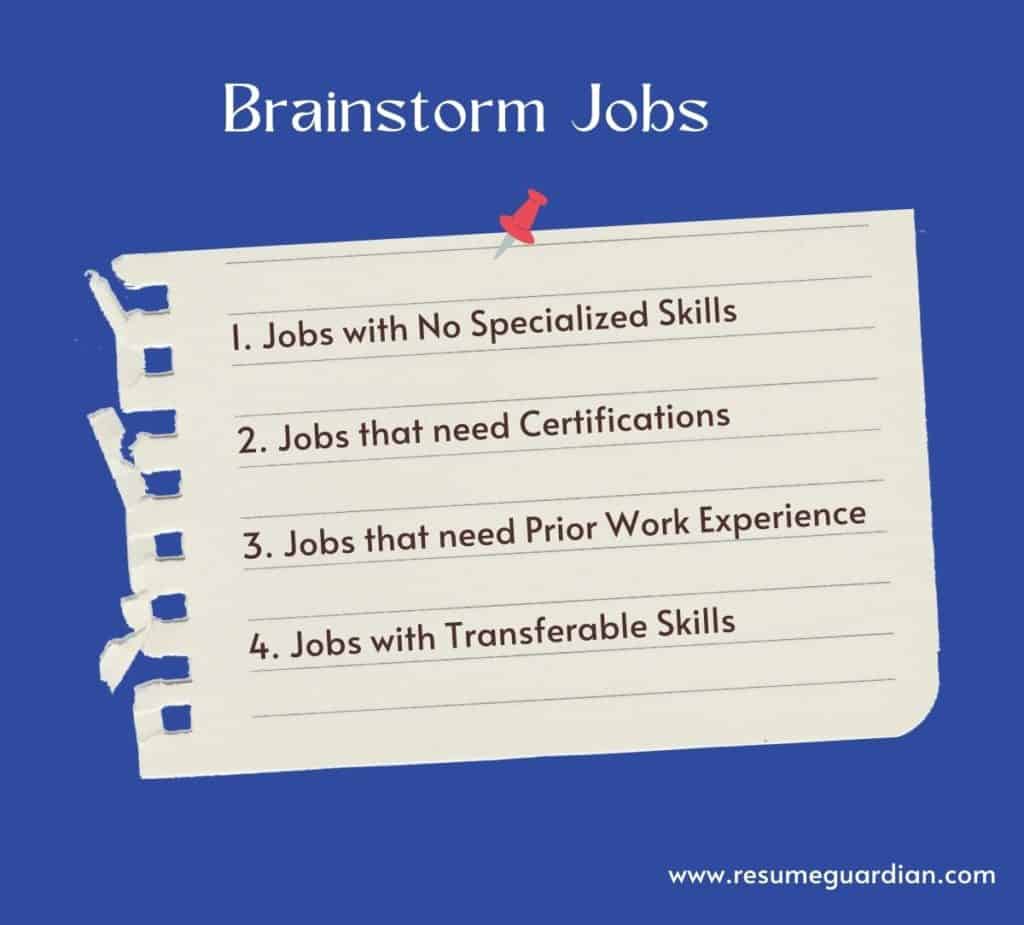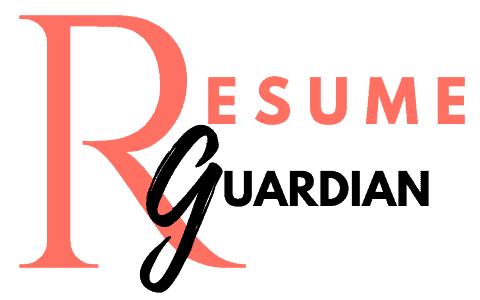
It could be tricky to get a job fast; sometimes, it could take weeks or months to get that job offer finally. It’s usually because you are trying to navigate the ropes, overcome the obstacles, and get through an interview.
But is it possible to speed-track this process? Sure, yes. In this article, I will show you how you can prepare yourself to find a job much faster.
So let’s dive deep in.

Identify and List your Skills and Experience
If you are starting your career, the first step is identifying your qualifications. Brain dump and create a list of all your skills in excel.
If you have prior job experience, list all your skills and experience and the types of jobs you have done so far.
Brainstorm Jobs You’re Willing To Do
As the next step, brainstorm and list all types of jobs you are willing to do. These jobs may or may not require specialized skills.
Prepare a list of the following:
- Jobs that “do not” require any specialized skills and you’re willing to do.
- Jobs that require specialized skills that you have acquired via certifications/courses but may not have any actual work experience.
- Jobs that require specialized skills, and you have prior work experience.
- Jobs that require transferable skills (e.g., Interpersonal Skills, Problem-Solving skills, Communication skills)

Jobs that do not require any specialized skills and you’re willing to do.
Jobs that do not require any specialized skills are usually at the lower end of the spectrum, but if your priority is to bring food to the table, take the job.
Remember, your target is to sustain yourself and your family until you gain sufficient skills to take your career to the next level.
Jobs that require specialized skills that you have acquired via certifications/courses but may not have any actual work experience.
While certifications and courses are good, employers usually value work experience more. Needless to say, theoretical knowledge cannot beat skills acquired on the job through work experience.
If your skillset allows you to build work experiences independently, start building a portfolio of projects that could count as actual work experience.
For example, if you have web design skills, you could show your project portfolio with all the websites you’ve built rather than just showing the courses or certifications.
There’s much more value in actual work experience gained by completing projects.
Jobs that require specialized skills, and you have prior work experience
This is the fastest way to find a new job because you hold those specific skills your new employer seeks. Ensure your interview preparation is concrete, and start applying for jobs.
Jobs that require transferable skills (eg, Interpersonal Skills, Problem-Solving skills, Communication skills).
For instance, if you’d volunteered to oversee or execute programs for non-profit organizations, skills like “communication skills” and “teamwork” are transferable skills that you would have acquired.
These skills could be used for similar jobs like project management, program management, etc.
Reach Out To Your Connections

Usually, many job openings get filled internally through referrals before they even reach the job market. Internal referrals can work wonders in today’s job market.
During job interviews, the interviewers have less than an hour to assess a candidate. And it’s quite easy to prepare for interviews and give all the right answers if the candidate knows what the interviewer is looking for.
This is quite scary to the hiring manager because if they make the wrong choice, they must go through the hassle of terminating the contract during the probation period.
This results in wasted months where work piles up, and then the hiring manager must go through a similar process of candidate shortlist and interviews all over again.
The easier, faster, and cheaper approach is for the hiring manager to check with existing teammates if they know someone they could recommend for the job.
And if you happen to be in the network of that employee or team, you get the job.
| Don’t underestimate the power of networking – Reach out to your existing connections, family, friends, and former colleagues. Put out the word on Social media, LinkedIn, etc. |
Freelance Work

Freelancing is self-employed work, which allows you to work for various companies and clients. It provides you with more flexible work arrangements.
You decide the hours you want to work based on how much you want to earn.
Freelancing can help you find jobs quickly if you possess the required skills, but it’s much harder work than you think.
Sure, executing a gig is a way to get a job fast and make some extra money when needed. But it’s not easy, as is being projected on websites, and it’s not a “Get Rich Quick” scheme.
It takes a lot of hard work, patience, skill-building, and months or even years of work to become an experienced freelancer.
You will need to work enough to understand the process of bidding for gigs, delivering “with quality” as promised, and building the skills required to get the gigs.
| Freelancing is doable, but put in the work now when you don’t urgently need that job or gig. Once you go through several iterations, you’ll be able to return later and take up the gigs whenever you urgently need some extra income. |
Find a Temporary/Casual Job

Temporary jobs are different from long-term contracts. They allow you to work for a set amount of time.
Usually, there will be a set duration for which the temporary employee will be required for the job.
Many agencies specialize in temporary jobs. It’s a good idea to contact such agencies who could help you out in your job search.
When applying for a temporary job, tailor your resume accordingly to suit that position. The more relevant and specific your resume is to that job, the more likely you will get that job.
And once you get the temporary job, take it seriously just as you would in a permanent position.
Based on your performance, many temporary jobs come with the opportunity to convert to a permanent role.
Also, you have an excellent opportunity to build and expand your network.
Contact Recruitment Agencies

Contacting a recruitment agency can be an excellent way to find a job. You can use the agency services to supplement your job search.
Don’t leave everything to the agencies and wait for them to contact you. You will not be in control of when you’ll get called for an interview.
The ideal approach is where you do the job search yourself and allow the recruiters to use their network and contacts to look for more opportunities.
Sometimes, job recruiters have job leads unavailable to the public. So working with a recruitment agency can give you an added advantage over other job seekers.
| Recruitment agencies can be very beneficial, but remember that some companies may not want to work with one because the company may not want to pay for the services of a job recruiter. |
Final Thoughts
Good fortune often happens when opportunity meets with preparation
Thomas A. Edison
The best approach is always to be prepared ahead of time. Start preparing when things are going your way, and everything looks good.
So in difficult times, when you have an emergency or urgency to find a job fast, the preparation you’d done before will help you stay relaxed and focused on grabbing that job offer.






